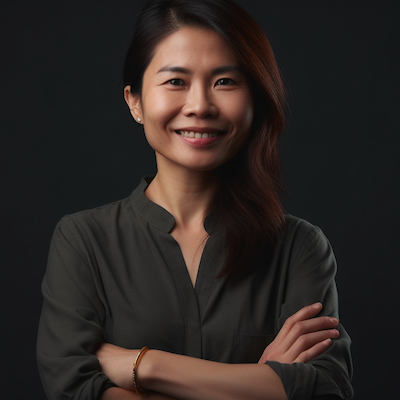In today’s complex, fast-moving organisations, leadership is being redefined. The old models—command-and-control, top-down directives, expertise-driven decision-making—are no longer enough. In their place, a new kind of leadership is emerging: one that values connection over control, curiosity over certainty, and empowerment over instruction.
At the heart of this shift lies a skillset that might not feature in traditional leadership handbooks—but is fast becoming a non-negotiable in the modern workplace: coaching.
Coaching is more than a tool. For senior leaders, it’s a superpower. One that transforms not just how they lead, but how they build trust, nurture talent, and shape culture.
In this article, we explore why coaching is one of the most powerful capacities a leader can develop—and what senior leaders need to know to harness it effectively.
Why Coaching Matters in Leadership—Now More Than Ever
Workplaces today are facing unprecedented challenges:
- Remote and hybrid working
- Cross-generational teams
- Uncertain markets
- Rising expectations around psychological safety, inclusivity, and purpose
In this context, leaders are no longer just expected to direct and deliver. They’re expected to engage, inspire, listen, support, and adapt. Coaching offers a powerful pathway to meet these demands—not by adding more tools to the leader’s toolbox, but by changing the way they relate.
Coaching Is Not About Having the Answers
One of the most liberating—and challenging—truths about coaching as a leadership skill is this: it’s not about giving answers. It’s about creating space.
Leaders often feel pressure to solve, fix, and direct. But coaching invites a different posture: one of curiosity, listening, and empowering others to find their own answers.
This shift is not about losing authority. It’s about reframing authority as presence, not dominance. A coaching leader doesn’t disappear. They become more intentional—asking better questions, holding richer conversations, and enabling others to step into their potential.
What Senior Leaders Gain by Developing Coaching Skills
1. More Engaged, Empowered Teams
When leaders adopt a coaching mindset, team members feel more seen, heard, and trusted. This leads to higher motivation, better performance, and a deeper sense of ownership.
2. Stronger Relationships and Trust
Coaching cultivates active listening, empathy, and reflection—all vital ingredients in relational leadership. Trust doesn’t just “happen”—it’s built through conversations where people feel genuinely understood.
3. Better Thinking, Better Decisions
Coaching encourages people to slow down, challenge assumptions, and think more deeply. When leaders coach rather than instruct, they help surface better thinking—which often leads to better decisions.
4. Greater Leadership Maturity
Coaching helps leaders become more self-aware, emotionally intelligent, and grounded. Rather than reacting from ego or pressure, coaching leaders respond with clarity and care.
5. A Scalable Leadership Culture
When senior leaders model coaching behaviours, those ripple down through the organisation. Line managers start doing the same. Over time, a coaching culture emerges—not through slogans, but through lived practice.
Coaching in Action: What It Looks Like for a Senior Leader
Coaching leadership isn’t about turning every one-to-one into a formal session. It’s about bringing coaching presence into everyday leadership moments, such as:
- Asking open, curious questions in meetings
- Creating space for reflection during performance conversations
- Listening without interrupting or “rescuing”
- Encouraging team members to explore their own solutions
- Holding space for ambiguity, emotion, and deeper inquiry
These are subtle shifts—but they have powerful effects.
Common Misconceptions About Coaching as a Leader
Let’s clear up a few myths:
“Coaching is too soft for senior leadership.”
Coaching isn’t about being soft. It’s about being strategically relational. It takes strength to listen deeply, ask challenging questions, and hold space for growth.
“I don’t have time to coach.”
Coaching doesn’t require hour-long conversations. It’s about shifting your leadership posture—bringing more curiosity, reflection, and presence into your everyday interactions. Even five minutes of true attention can be transformative.
“Coaching means giving up control.”
Coaching doesn’t mean letting go of accountability or direction. It means empowering others while staying aligned to outcomes and values. It’s not hands-off—it’s hands-open.
What Senior Leaders Need to Develop Their Coaching Superpower
If you’re a senior leader ready to embrace coaching, here’s what helps:
Training that respects your level
You don’t need to become a professional coach—but you do need to understand the principles. Look for training that speaks to the complexity of leadership while grounding you in coaching presence, ethics, and skill.
Time for reflection
Coaching requires self-awareness. Making time to explore your leadership identity, triggers, and habits is key to coaching others well.
Support from internal coaches or supervisors
Working with internal or external coaches can help you experience the power of coaching firsthand—and reflect on your own practice in real time.
Cultural permission
For coaching leadership to take root, it needs to be supported—not just individually adopted. Senior leaders can model this by celebrating reflective conversations, psychological safety, and coaching skills across the organisation.
Final Thoughts: Coaching as Leadership Maturity
At its core, coaching is not a “technique” to bolt onto your leadership. It’s an expression of leadership maturity. A sign that you trust yourself enough to not have all the answers—and that you trust others enough to grow.
When you coach as a leader, you don’t lose authority. You amplify impact.
You become someone people don’t just follow, but grow through. And in a time where depth, humanity, and authenticity are needed more than ever, that’s not just a competitive edge—it’s a legacy.
Seong Rhee is a professional researcher on coaching and the coaching profession. Her interests lie in executive and corporate coaching and the impact of coaching in the workplace.




